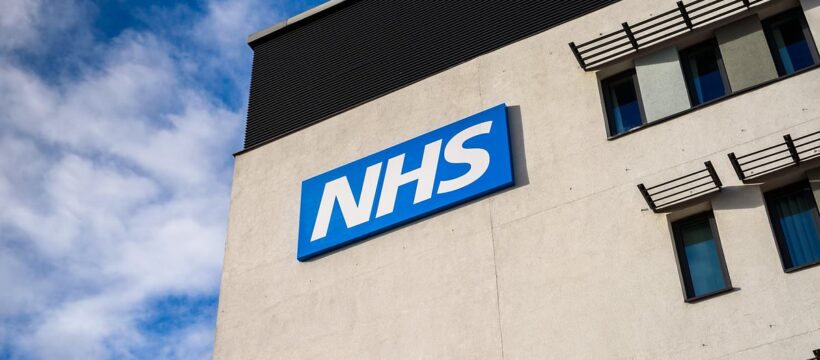NANA AKUA: My son’s disability, the arrogance of some healthcare workers – and why the NHS is now the No Help Service
You would need a heart of stone not to be moved by the case of ST — the 19-year-old girl born with an extremely rare degenerative disease who gave a heart-wrenching interview to the Mail’s Inderdeep Bains last Saturday.
Doctors took her to court to argue that this once bright, smiley girl with a clutch of GCSEs to her name, should be moved to palliative care — a pathway to death.
As ST told the Daily Mail in a heart-wrenching interview, she found herself ‘trapped in a medical and legal system… which has condemned me for wanting to live’.
I would like to think of ST’s case as unique. But the truth is that in one respect it is anything but.
Horrific as her predicament is, ST’s case throws a spotlight on a sickness at the heart of the NHS. Too many healthcare professionals — and I’m not just referring to doctors here — are so blinded by their egos they can’t countenance being wrong.
Staff should not stand in the way of patients seeking second opinions. They should welcome the opportunity for a fresh pair of eyes. When did the letters NHS begin to stand for No Help Service?
I know because I went headlong into just this situation in July with my six-year-old son, although mercifully his case is not a matter of life and death.
Ivory has cerebral palsy — the result of being born at just 28 weeks. His condition is relatively mild. But it means he is weaker on his right side. His foot turns in, his gait is sometimes unsteady and he is prone to falling over. I worry that, as he grows up, this could all lead to damage to his spine.
READ MORE: ‘I want to die trying to live’: Teenager with rare genetic condition fights in court over NHS trust’s attempt to withdraw her life-saving treatment
So I was excited when I happened to catch an old episode of ITV’s Little Heroes. One of the children featured was a little girl with cerebral palsy. She’d had exactly the same problem as Ivory until she was treated with Botox. Injected into the back of her legs, the Botox had relaxed the tight muscles and allowed other muscles to work better.
I brought the case up when I met Ivory’s physiotherapist on one of our regular hospital visits. I was eager to know whether it could work for Ivory too.
She dismissed it out of hand. ‘No, no. It definitely wouldn’t work,’ she said. When I persisted, she offered to look into callipers for him — something I’ve never wanted nor asked for.
I asked her if I could seek a second opinion. Clearly taking the request personally, she resisted.
After fuming at home for a few days, I contacted the specialist physiotherapist team who wrote back telling me there was no point in getting a second opinion. Instead, they provided me with a link to private paediatric physios.
The result is that I am reduced to going behind their backs and writing directly to Great Ormond Street who treated the little girl I saw on TV to appeal for help.
I should stress that Ivory has been seeing these specialist physiotherapists regularly over the years. I have been very grateful for their care and have never felt the need to question them.
Who can ever forget baby Charlie Gard whose parents fought long and hard and ultimately lost a High Court battle against doctors at Great Ormond Street to keep their son alive?
But now I am, and — like scores of parents before me — finding the cards are stacked against me.
It shouldn’t be like this. Staff should not stand in the way of patients seeking second opinions. They should welcome the opportunity for a fresh pair of eyes. When did the letters NHS begin to stand for No Help Service?
Tragically, ST is just the latest case in a long line of patients to find themselves at the mercy of healthcare professionals with over-inflated egos.
Who can ever forget baby Charlie Gard whose parents fought long and hard and ultimately lost a High Court battle against doctors at Great Ormond Street to keep their son alive?
Their traumatic struggle left them convinced that no other parent should suffer as they did. That’s why they are arguing for a Charlie’s Law, which would help parents get the support they need in terms of independent second opinions and legal aid, so they are neither financially ruined nor made dependent on funding from pressure groups.
When healthcare staff refuse to listen to parents, the results all-too often end tragically. Look at Martha Mills (pictured). The 13-year-old died after doctors refused to call for a second opinion
Her mother, Merope (pictured with Martha), is now campaigning for the introduction of Martha’s Law in her name to give parents, carers and patients the right to seek a rapid review by a separate clinical team — or a second opinion from another specialist doctor based in the same hospital
When healthcare staff refuse to listen to parents, the results all-too often end tragically. Look at Martha Mills. The 13-year-old died after doctors refused to call for a second opinion.
Her mother, Merope, is now campaigning for the introduction of Martha’s Law in her name to give parents, carers and patients the right to seek a rapid review by a separate clinical team — or a second opinion from another specialist doctor based in the same hospital.
Merope’s quiet dignity can’t hide the horror of what happened to her little girl — all because doctors were so blinkered they were convinced they knew best.
Backed by everyone from Theresa May to Labour’s shadow Health secretary, Wes Streeting, Martha’s Law can’t come soon enough.
Source: Read Full Article




